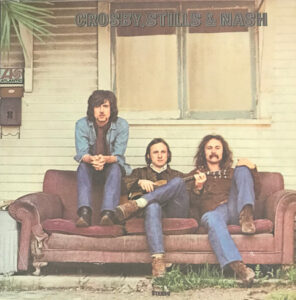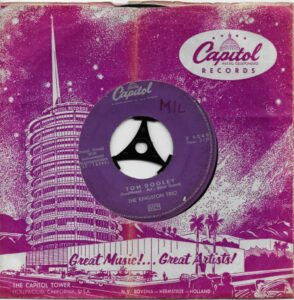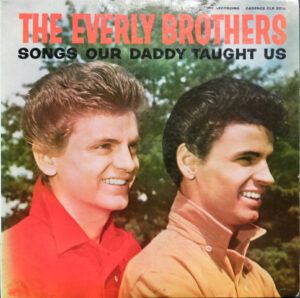Global, selected and explained by Stan Rijven.
Episode: IM David ‘close harmony’ Crosby
Although this program usually focuses on the black sources of pop music, due to the recent death of David Crosby (1941-2023), this episode has white roots as its main theme. Specifically, the crossovers between British and American folk traditions and how they culminated in folk rock and pop in the mid-sixties.
“He was long a caricature of the stoned hippie, but his music was the soundtrack of the baby boomer generation”. The NRC (21 Jan. 2023) recalled the death of David Crosby, who gained widespread fame through the American close harmony group Crosby, Stills, Nash & Young, under the headline ‘Eternal rebel gave Woodstock generation a voice’. However, he symbolizes much more and his work deserves a broader context. Crosby was one of the key figures in the transatlantic interaction between Merseybeat and the West Coast sound in which country fused with folk (and psychedelia).
As Mersey groups from Liverpool and Manchester – The Beatles, The Hollies, The Searchers – built on the British skiffle and folk tradition with sharp close harmony, bands from Los Angeles and San Francisco continued on the path paved by Bob Dylan, The Everly Brothers, and the Kingston Trio.
Thanks to Dylan and The Byrds, folk music sounded electric from 1965 onwards. Crosby started in a folk duo, Roger McGuinn in the Chad Mitchell Trio. Together, they started their group The Byrds, partly influenced by the Mersey sound, with the “electric” cover of Dylan’s Mr. Tambourine Man as their first hit success. After Graham Nash left The Hollies and England for good, he met David Crosby and Stephen Stills in Los Angeles, resulting in the trio C, S & N in 1969. With all the consequences that followed. In parallel, a different folk rock movement developed in England with Fairport Convention, Pentangle, and Steeleye Span as the most influential groups.
Thus, an episode full of ‘pop archaeology’, or an improvised source study of the brackets and details that created renewed crossovers between the US and UK. ‘Renewed’, because since the 17th century – due to migration and colonization – both music worlds have been interconnected. Hundreds of ballads, sea shanties, and folk traditions emerged from this. Since 1995, Roger McGuinn has documented this centuries-old interaction monthly through ‘The Folk Den Project’, for which he started a separate website.
Check:
https://en.wikipedia.org/wiki/Folk_Den
https://freemusicarchive.org/music/Roger_McGuinn/Folk_Den_Project
Playlist:
- David Crosby- Orleans Album: If I could only remember my name (Atlantic, 1971)

- Crosby, Stills & Nash- Guinnevere Album: Crosby, Stills & Nash (Atlantic, 1969)
- Dolores Keane & John Faulkner- The wee weaver (1983) CD: Celtic grace: a best of Ireland (Hemisphere, 1994)
- Chad Mitchell Trio- Vaichazkem Album: Harry Belafonte returns to Carnegie Hall (RCA, 1960)
- Kingston Trio- Tom Dooley (1958)
CD: The original (Disky, 1996) >>>>
- The Beatles- Words of love Album: Beatles for sale (Parlophone, 1964)
- The Beatles- Yes it is (1965) CD: The Beatles Anthology 2 (Apple, 1996)
- The Hollies- Yes I will (1965) CD: Single collection (EMI, 1997)
- The Searchers- Needles & Pins (1964) CD: The very best of (Diamond Star Collection, 1991)
- The Byrds- I’ll feel a whole lot better

Album: Mr. Tambourin Man (1965)
- Everly Brothers- Kentucky Album: Songs our daddy taught us (Cadence, 1958)
- Simon & Garfunkel- Scarborough fair (1966) CD: The best of (Columbia, 1999)
- The Kafala Brothers- Vissolela CD: Ngola (AA Enterprises Records/ Stern’s, 1988)
- The Pentangle- Bruton town
Album: Sweet child (Transatlantic Records, 1968)>>>>
- The Eagles- Bitter creek Album: Desperado (Asylum, 1973)
- Crosby & Nash- Lay me down (2004)| CD: Crosby & Nash (Sanctuary, 2004








